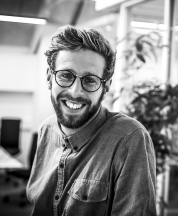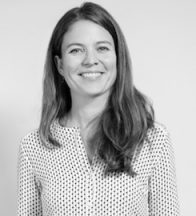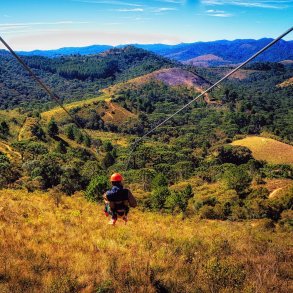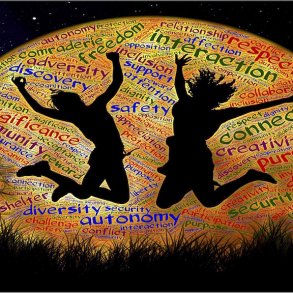By Anne Thybring and Theis Réthoré for Enlivening Edge Magazine
Introduction by Jean-Paul Munsch, Guest Editor of EE Magazine’s Education edition:
I really love this article. Doing Teal education means intertwining self-management, purposeful actions, and lived wholeness. Anne Thybring and Theis Réthoré show what it takes to work with different mindsets and which effort it requires to shift from a hierarchic belief system to a Teal (or should I call it self-managing?) mindset. Emancipation—understood as bringing the potential of students into life—is not done by the amount of material taught but by the experiences one gains. The following article is a touching and encouraging example how the challenge can be met.
How do you teach people to be free? If they are free because you told them to be so, they really are not. If people just follow orders from others, well, you simply cannot call them free[1]. So how to educate and give a lived experience of a mindset that is naturally developed and cannot be rushed?
We faced this paradox when we set out to teach students at a Danish University about self-management, emergence, collective intelligence, purpose-driven organisations, and a more sound and wholeness-centered way of bringing oneself to work. We met for the first time in the spring of 2016 with 20 students at Institute of Psychology, Aarhus University. We were as excited as the students, not knowing how or even whether we would succeed with our endeavour: To create a temporary organisation with the purpose of producing knowledge and experiences about Teal organising.
The course description stated: “This course aims at discovering alternative models of organising and at examining and discussing these models from a psychological perspective”. Our vision was to make the course-organisation “alternative” in itself, in order to let the students (and us) get a lived experience of being in a self-managing, purpose-driven, and wholeness-oriented organisation.
Two educational agendas
We had high hopes. We thought that through this lived experience, we eventually could help the students on their emancipation (as understood in context of liberal education/Bildung) journey. In this sense emancipation means the educating of judgment and a thoughtful use of one’s freedom. It soon turned out that this purpose of acquiring psychological knowledge and letting the students experience and feel the principles of Teal did not really resonate with most of the students. What they were really committed to was getting good grades on their way towards becoming a psychologist.
It did not take long before we were confronted with the contrast of these two agendas: the students, who seemed to be concerned with earning good grades and recognition; and us teachers, more concerned with the students’ learning, and with supporting their process of emancipation. These competing agendas posed a challenge to us. We encountered it in many forms such as:
- What is the curriculum? We chose to determine only about 60% of the course curriculum, leaving 40% open for the students to decide.
- What are the goals for this course? Co-creating knowledge and learning about humanizing organisations in a psychological perspective seemed very abstract to some. They wanted to know what they should demonstrate they knew.
- How do I write a good assignment? What do you (us, the teachers) want me to do?
- What do you mean by saying I need to experience, sense, and reflect on my personal experience, of being in this course-organisation? Why?
Modern-day education
These contrasting agendas resonate with our experiences of teaching in an educational system where students are urged and forced to make progress in terms of finishing courses on time. Eat your cereal, do what you are told, get good grades, and finish your studies on time – and then find out what you want to do, seems to be the credo for recent educational politics.
What’s wrong with getting good grades, one might ask? “Nothing,” is the obvious answer, but when grades and passing exams seem to be the purpose of studying, we are contributing to a mindset in which student are to do what they are told and wait for instructions from their teachers, from the educational system, etc. This is done in a way in which learning becomes something the students must show in order to get good grades. This practice is in clear contrast to the self-managing mindset, where students are encouraged to think and wonder.
In our pursuit of enhancing the Teal principles, we were hoping for a credo more like:
Because you met something unknown to you, you had to wonder about it. You talked about it, got great advice from fellow students, literature, and teachers. Eventually through hard work and reflection, you transcended that question and you learned something or started wondering about something new. This journey was luckily captured in your assignment and earned you a good/decent/sufficient grade.
So, how did we deal with these competing agendas?
As stated above, it did not take long before a mindset bred in the aforementioned educational system challenged our hopes for an emancipating and wondrous educational credo. This posed a challenge, as we sought to create a space where students would have an opportunity to get a glimpse–and perhaps a feel–of what it means to live and organise from a different mindset. In order to create that space we did a number of “alternative” things.
- We tried to overcome the ever-present relationship between student and teacher where students are over-conscious about their questions, remarks, and contributions because they fear a bad evaluation. We defined ourselves not as teachers but as organisation-experts, and the students not as students but as experts in general psychology. We welcomed them to six months of all of us co-researching into these strange, non-hierarchical, self-managing organisations, exploring them through the lenses of psychology.
- We created space in our meetings to talk about the intertwining and co-existence of the many purposes in and of our course-organisation. Sitting in a circle with closed eyes we tuned in on the organisation as an organism and tried to sense: What is the emerging purpose of this organisation? What is it trying to accomplish? What is difficult for it? Some students responded to these moments with a deeper understanding of what was going on. Others felt confused.
- We spent time on evaluating the course-organisation, discussing what works well, what is missing, what we should stop/start doing. In one of these evaluations, Peter, a student, said that he would like more discussions about the literature and about his thesis statement. He directed his remarks to us. We stayed silent, but after a while one of us replied: “Is there anything holding you back from getting that?” He looked surprised, then puzzled, and then a smile came to his face as he slowly turned to his fellow students and said “So that is why I will …decide on a date and time, and invite those of you who sense the same need, to join me.”
Returning to the contradiction
To us, this third example was a magic moment. Everyone smiled, and realised this was a game-changer in reversing responsibility and authority, gaining freedom to act, and grasping the idea of emancipation. They saw a little glimpse of a different way of being in the world. It was not Peter developing Teal consciousness, of course, but a small bodily experience of how organisational life might enfold.
Returning to the opening paradox of freedom: the collective here, in our opinion, succeeded in catalysing a small but significant change, and in producing knowledge and experiences about organising from different mindsets.
We experienced that you cannot be told or encouraged to change your mindset. A mindset cannot be forced or rushed upon someone or oneself. We also experienced that if we do not talk about the difference in mindsets and instead act upon the common expectations of education, we will repeat and reproduce a culture where students are waiting to be told what to do by teachers who are experts telling about a certain subject.
A mindset is matured over time, and contributing to this process is our task at hand as educators. This means to us that we have to insist on telling the students that there are different ways of studying. We as educators opting for Teal need to stimulate another way of living in order for the student to learn about and start to sense this way.
This is much more than just Teaching Teal, an activity where students read and learn about Spiral Ddynamics and Integral Theory. When they are taught about it, they can work with and identify Teal organising in an organisational context, e.g. the three breakthroughs identified so skilfully by Frederic Laloux: self-management, striving for wholeness, and listening to the evolutionary purpose of the organisation. In this activity students are able to write about and discuss these principles and maybe get a good grade.
Trying to educate Teal is a completely different practice, and in itself an impossible task– impossible because teachers can only inspire, and create challenges and opportunities that eventually help the students question their currently-held mindset. In our experience this is a practice where students are encouraged to stretch their understanding of the world around them and their own actions through inquiry and wonder.
It is also a practice where “educators” create space and opportunity for the students to perhaps experience the boundaries of their current mindset. To grasp this, and to feel a desire and not least of all the courage to challenge or shift long-held ideas and convictions about organisations and about oneself, is a tremendous effort. Indeed, it is an effort worth working for as well.
How are we experiencing these “lessons learned” today?
Since Spring 2016, we have continued our work with helping humans in organisations who struggle with these transitions. Working ourselves in Agora, a consulting network that is growing into a Teal-inspired organisation, we experience the messy, confusing, discouraging, and inner-fulfilling journey towards creating a beautiful and humanizing organisation.
As consultants for other companies we are confronted with the idea of people waiting for something to inspire them, for something interesting to happen, for someone to take responsibility, for someone to take care of unmet needs, for action to be taken or change to happen. We meet leaders whose employees are waiting for their paycheck and job descriptions to come, innovation to happen in their department, conflicts to be solved for them, etc. Still, we are trying to figure out how to reverse this mindset of waiting. This will not happen overnight, we know, but maybe it is sufficient to say that the waiting is over. It is time to become free.
[1] This is an elaboration on a paradox theorized upon by Kant (1803) – ”On Education”

What is freedom, how does it feel, and what does it mean? Theis Réthoré works as an organisational psychologist investigating and facilitating individual and organisational development and conversations about freedom and its corollaries.
 Anne Lund Thybring is passionate about creating knowledge about the workplaces of the future. She works as an organizational psychologist with small and large private companies facilitating their development towards Teal.
Anne Lund Thybring is passionate about creating knowledge about the workplaces of the future. She works as an organizational psychologist with small and large private companies facilitating their development towards Teal.




I love this article and this statement captures the essence of development towards Teal in my opinion. ‘ In our experience this is a practice where students are encouraged to stretch their understanding of the world around them and their own actions through inquiry and wonder’. Good luck on the journey!!